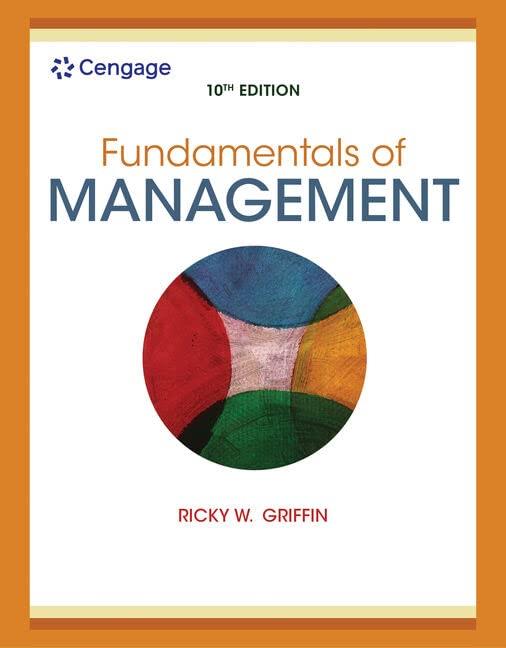At any given time, theres no shortage of publications offering practical advice on management and leadership. Recent
Question:
At any given time, there’s no shortage of publications offering practical advice on management and leadership. Recent business bestsellers included such titles as Good to Great, by Jim Collins; First, Break All the Rules, by Marcus Buckingham; and The 21 Irrefutable Laws of Leadership, by John C. Maxwell. Some of these books, such as Winning, by former General Electric CEO Jack Welch, are written by managers with years of experience. Others are written by consultants, professors, or business reporters. Granted, a lot of these books—okay, most of them—don’t have much theoretical foundation, and many are basically compendiums of opinions and suggestions unsupported by scientific evidence. Even so, many touch upon ideas that may well be worth the time it takes a busy manager to read them. Thus, a real issue for contemporary managers is knowing how to analyze what they read in the popular press and how to separate the practical wheat from the pop-culture chaff. This exercise gives you a little practice in doing just that.
Exercise Task
Following is a series of 20 statements. To what extent does each statement describe your use—actual or planned—of the described behavior when you’re on the job? To address this question, rate your response to each statement according to the following scale:
 1. ______ I use personal contacts to get jobs and promotions.
1. ______ I use personal contacts to get jobs and promotions.
2. ______ I try to find out what’s going on in every organizational department.
3. ______ I dress the same way as the people in power and develop the same interests (e.g., watch or play sports, join the same clubs, etc.).
4. ______ I purposely seek contacts and network with higher-level managers.
5. ______ If upper management offered me a raise and promotion requiring me to move to a new location, I’d say yes even if I didn’t want to move.
6. ______ I get along with everyone, even people regarded as difficult to get along with.
7. ______ I try to make people feel important by complimenting them.
8. ______ I do favors for other people and ask favors in return, and I thank people, often sending thank-you notes.
9. ______ I work at developing a good working relationship with my supervisor.
10. ______ I ask my supervisor and other people for advice.
11. ______ When someone opposes me, I still work to maintain a positive working relationship with that person.
12. ______ I’m courteous, positive, and pleasant in my relationships with other people.
13. ______ When my supervisor makes a mistake, I never point it out publicly.
14. ______ I’m more cooperative (I compromise) than competitive (I try to get my own way).
15. ______ I tell the truth.
16. ______ I avoid saying negative things about my supervisor or other people behind their backs.
17. ______ I work at getting people to know me by name and face by continually introducing myself.
18. ______ I ask satisfied customers and other people familiar with my work to let my supervisor know how good a job I’m doing.
19. ______ I try to win contests and get prizes, pins, and other awards.
20. ______ I send notices of my accomplishments to higherlevel managers and such outlets as company newsletters.
Scoring
1. Add up the 20 numbers in the blanks before all the questions. Your total will range between 20 and 100. This number reflects your overall political behavior: The higher your score, the greater your political behavior.
2. Record your score here ______ and on the scale that follows:

3. Now you want to determine your use of political power in four different areas (e.g., learning organizational culture, being a team player, etc.). To do this, add up your numbers for each of the following sets of questions and then divide by 5. You will then have your average score for each area:
A. Learning the organizational culture and getting to know the power players:
Questions 1–5 total ____ divided by 5 = ____
B. Developing good working relationships, especially with your boss:
Questions 6–12 total ____ divided by 5 = ____
C. Being a loyal, honest team player:
Questions 13–16 total ____ divided by 5 = ____
D. Gaining recognition:
Questions 16–20 total ____ divided by 5 = ____
The higher your average score for each set of questions, the greater your use of political power in that area. Do you rate about the same in each area, or do you rate more highly in some areas more than others?
Step by Step Answer:






